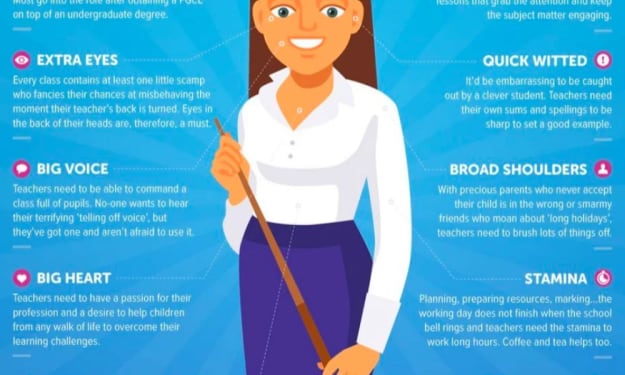12 Good Study Habits to Learn and Love
Are you someone who is struggling with school? Check out some of these tips to get you to be a better learner.

Are you someone who is struggling with school? Check out some of these tips to get you to be a better learner.
1. BUY YOUR BOOK - In high school you are given books from your teachers. If you begin to read and realize that you don’t understand as much as you thought you would, check the ISBN number and go online to buy the book for yourself. Chances are it’s much cheaper than purchasing one from your school. Good sites to check out are www.half.com , or www.amazon.com . Amazon is especially good if you want to check the prices of books that are brand new and compare them to a used book. The used ones are usually significantly cheaper than those that are new. Once you purchase a book, it is yours to write in, draw in, and highlight.
2. HIGHLIGHTER HEAVEN - Highlight everything, from your book (if it’s yours) to any extra handouts your teachers may give you. Highlighting improves your perception of what you’re reading, and you’re likely to retain more. It also helps when it comes time to study for a test – instead of reading the whole chapter – read over your highlighted sections. If you have trouble decided what to highlight, talk to your teachers and have them help you out. Chances are they’ll love to help you.
3. STUDY WITH FRIENDS - Study groups are frequently underrated. Those who study on their own are more likely to fail with homework and seek help with homework writing services, such as grademiners, than students who study with friends. The success rate of such students is much higher. Some study groups will meet the night before a test for a brief overview of the chapters they’ve read, and then expect to ace the test. It is important to know that study groups are not the sole reason you will receive an A. You need to be prepared before going to a study group, and use the group as a review of what you already know. Other study groups meet more frequently, not just the night before the test. In these study groups it is important to come prepared, but don’t feel like you need to know everything. If you want to be involved in a study group but cannot find one, ask your teacher if they’d be willing to supervise one a few times a week, for a half hour or so after school in the classroom. If they disagree, ask them to at least propose an outside-of-school study group to the class so you have an opportunity. You can also post messages on facebook or an online blog to alert people of your study group plans.
4. READ YOUR BOOK - This will seem obvious but you’d be surprised how many people do not do it – READ THE MATERIAL! If you’re looking to up your grade and you don’t read the book, then that is a serious problem. Start finding time to study.
5. GO ONLINE - Find more information on your subject. You have the world at your fingertips today – gather information online, at the local library, or at your school library. You can even ask your teacher for more information on what you’re studying.
6. GET SOME FLASH CARDS – Although most teachers will recommend you write your own flashcards, you can also purchase some online for most subjects. Just type a quick Google search for “Flash cards for sale.” You’re bound to find something. If you think you take more effective notes by yourself, go buy some index cards and write down small facts as you read. Some people even highlight as they read, and then go back and copy all their highlighted information onto their index cards. It is important to note that you should try to paraphrase on your index cards as much as you can. It will look less cluttered, and is less likely to stress you out when it comes time to memorize all those little facts. Having trouble keeping your index cards together? Use a rubber band or punch a hole in the corner and link them all together with string or a binder ring.
7. READ, READ, READ – Some people read the same text many, many time before they can fully understand and remember what they read. Do not feel bad if this is not for you. I know very few people this works for, but you’ll never know until you try. It is, however, very time consuming, and you need to make sure you keep track of the time you have until you need to know the information.
8. DRAW WHAT YOU KNOW – Maybe you’re a very visual person. Take notes as you normally would in class – with writing. When you get home, review what you learned that day and sketch small pictures to help you remember. You can even do this in a separate notebook.
9. STAY ORGANIZED – This is crucial to anyone who wants to improve their grades. If you know you are someone who is having trouble with this then check out some sources online to get help getting organized. I’d recommend buying one binder for every subject, of all different colors. Also buy a two-pocket folder and a spiral for those heavy-writing classes. Some people even coordinate their spiral’s color to match their binder’s color. Make sure your binders are well separated – a tab for everything: tests, daily work, notes, handouts, etc. As soon as you receive something from a teacher, put it under its designated tab.
10. KNOW WHEN YOU’RE TIRED – Don’t try to stay up too late studying. Usually a lack of sleep will only hurt you when test-taking. If you’re concerned about getting homework done before bed time, try starting it earlier, with frequent breaks. Your mind may be more tired than your body. When this happens, take a walk outside or grab a glass of water. Just remember your brain enjoys physical as well as intellectual exercise, both in moderate amounts.
11. BE VERBAL - Maybe something your teacher just said doesn’t make any sense to you at all. Don’t be afraid to ask questions. If you don’t want to ask in front of everyone, send him/her an email later, or stay after class and ask. If you’re afraid you won’t remember what you wanted to know, write it down before you leave.
12. CUSTOMIZE YOUR NOTE-TAKING – Some people enjoy taking very elaborate notes. If this sounds like you, then ask yourself this: do you ever fall behind in a lecture? Ask your teacher if he/she will allow you to bring a tape recorder to class and later you’ll transfers any information you’ve missed. You may also ask them if you can bring your laptop in because you type faster than you write.
Just remember that not all of these will work for you, and maybe none of them do. You know yourself better than anyone, so keep in mind you’ll want to find out what’s best for you.
About the Creator
Mark Almont
My name is Mark. I am a freelancer. I write articles. I also study at Harvard University, Department of Philology. I like to spend time with friends and travel. I am fond of different sports.
Enjoyed the story? Support the Creator.
Subscribe for free to receive all their stories in your feed. You could also pledge your support or give them a one-off tip, letting them know you appreciate their work.






Comments
There are no comments for this story
Be the first to respond and start the conversation.